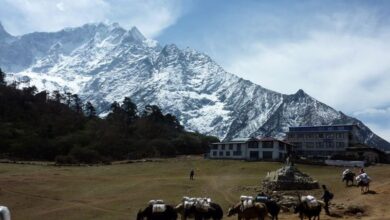Navigating Regulations: A Guide to Company Registration in the Democratic Republic of Congo

To Start a Business in DRC can be a worthwhile open door; be that as it may, it requires a profound cognizance of the lawful construction and cycle of enrolling an organization. This point-by-point guide will lead business visionaries through the intricacies of company registration in the DRC, offering an orderly way to deal with setting up organizations in this central African country.
Understanding the Regulatory Landscape
It’s basic to grasp the legitimate system controlling business development in the DRC beginning the registration procedure. The Law No. 003/2002 of August 2, 2002, covering the Business Code, is the primary piece of regulation in the country that administers business creation. Moreover, the Overall Business Library (RCCM) manages the enlistment strategy and ensures adherence to appropriate lawful resolutions and rules.
How to select accurate Business Structure:
The most important phase in registering a company in the DRC is picking the proper business structure for your endeavor. The choices accessible include:
- Sole Ownership: A business possessed and worked by a solitary person.
- Partnership: A business possessed and worked by at least two people or substances.
- Limited Obligation Organization: A different legitimate element with restricted risk for its proprietors.
- Public Restricted Organization: An organization whose offers are public on the stock exchange.
Consider factors like responsibility, tax assessment, and proprietorship structure while choosing the most appropriate business structure for your endeavor.
Conducting a Name Search
After selecting your business structure, it is essential to check if your desired business name is available by conducting a name search online through the RCCM portal or in person at the RCCM offices by company registration in the democratic republic of congo. Once the name is approved, it will be reserved for a set period, allowing you to continue with registration.
Preparing Registration Documents
With the business structure and name finalized, the subsequent stage is to set up the fundamental registration documents. For a Limited Liability Company (LLC), these reports regularly include:
- Articles of Affiliation: This report frames the organization’s targets, construction, and rules for administering its activity.
- Memorandum of Affiliation: This report details the inside guidelines and systems for the organization.
- Declaration of Joining: This report contains data about the organization’s chiefs, investors, and enrolled office addresses.
Guarantee that all reports are precisely ready and consent to the prerequisites determined by the RCCM.
Submitting Registration Documents
You can send your registration paperwork to the RCCM for processing whenever they are ready. The paperwork can be turned in in person at the RCCM offices or online via the RCCM site. You should pay the necessary registration fees as stipulated by the RCCM in addition to the registration paperwork.
Getting an NIF (Tax Identification Number)
You must get a Tax Identification Number (NIF) from the General Tax Directorate (DGI) after completing your registration paperwork. Your business cannot launch before the NIF is obtained, as it is necessary for tax purposes. Applying for an NIF can be done in person at DGI offices in the DRC or online via the DGI webpage.
Receiving Certificate of Incorporation
When your registration documents are processed and supported by the RCCM, you will get a Testament of Joining, formally acknowledging your organization as a legitimate substance in the DRC. This endorsement serves as verification of your organization’s presence and empowers you to start business activities in the country.
Fulfilling Post-Incorporation Requirements
You should complete some put-up-incorporation formalities after obtaining your Certificate of Incorporation with a view to ensuring conformity with DRC laws and rules. These would possibly encompass:
- Getting Business Licenses: Depending on your industry, you might want to use added licenses or permissions from the appropriate regulatory bodies.
- Value Added Tax (VAT) Registration: You need to sign in with the DGI for VAT if the annual revenue of your business exceeds a particular level.
- Opening a Bank Account: You need to create a financial institution account with a neighborhood bank in the Democratic Republic of the Congo in your employer’s call with a view to ease commercial activities.
Conclusion
Exploring the guidelines and Start a Business in DRC takes cautious preparation, scrupulousness, and consistency with legitimate prerequisites. Money managers may effectively explore the enlistment cycle and lay out their organizations in this powerful and creating market by following this bit-by-bit approach. The focal point of Focal Africa (DRC) gets a few opportunities for corporate development and accomplishment with the right preparation and heading.




